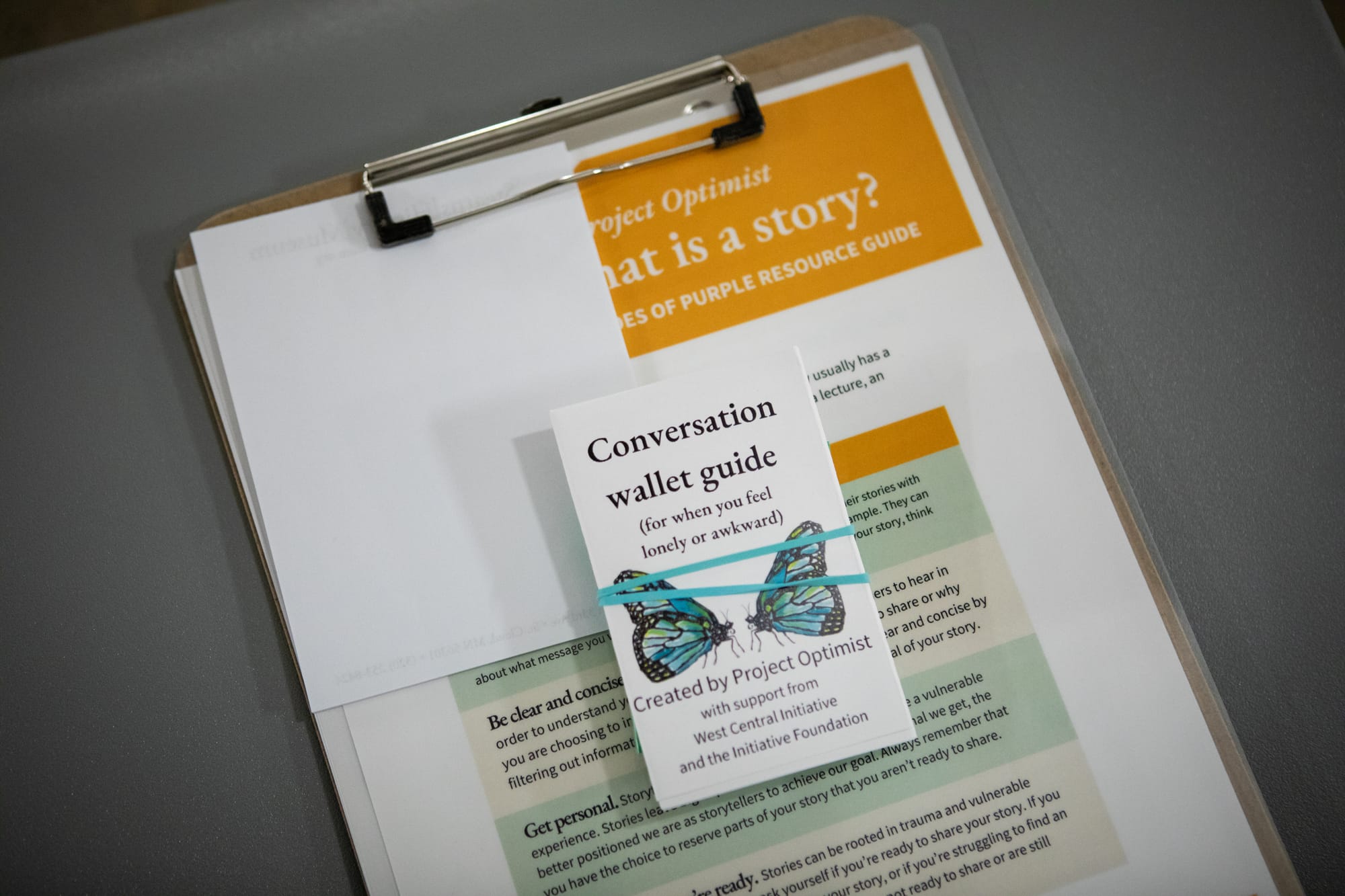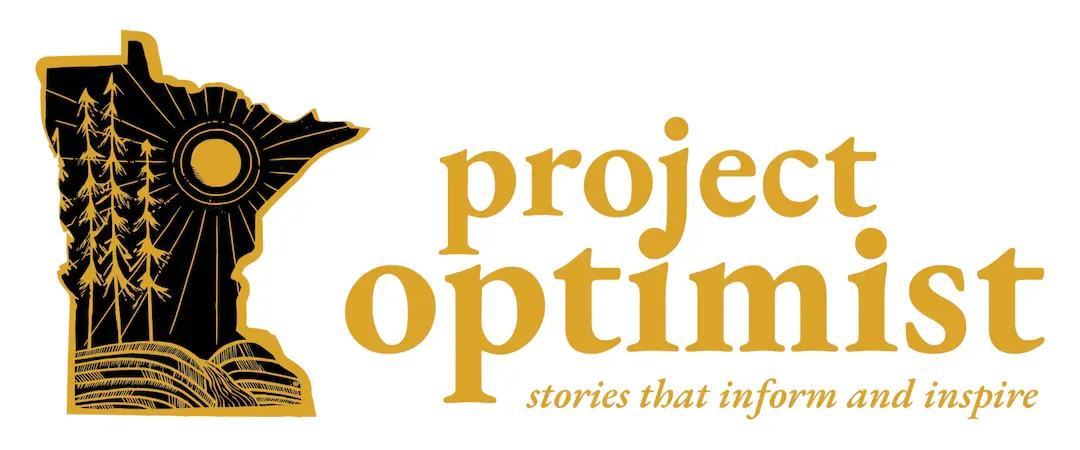College students share insights on social connection
Students from the College of Saint Benedict and Saint John’s University joined a moderated conversation about social connectedness and loneliness.
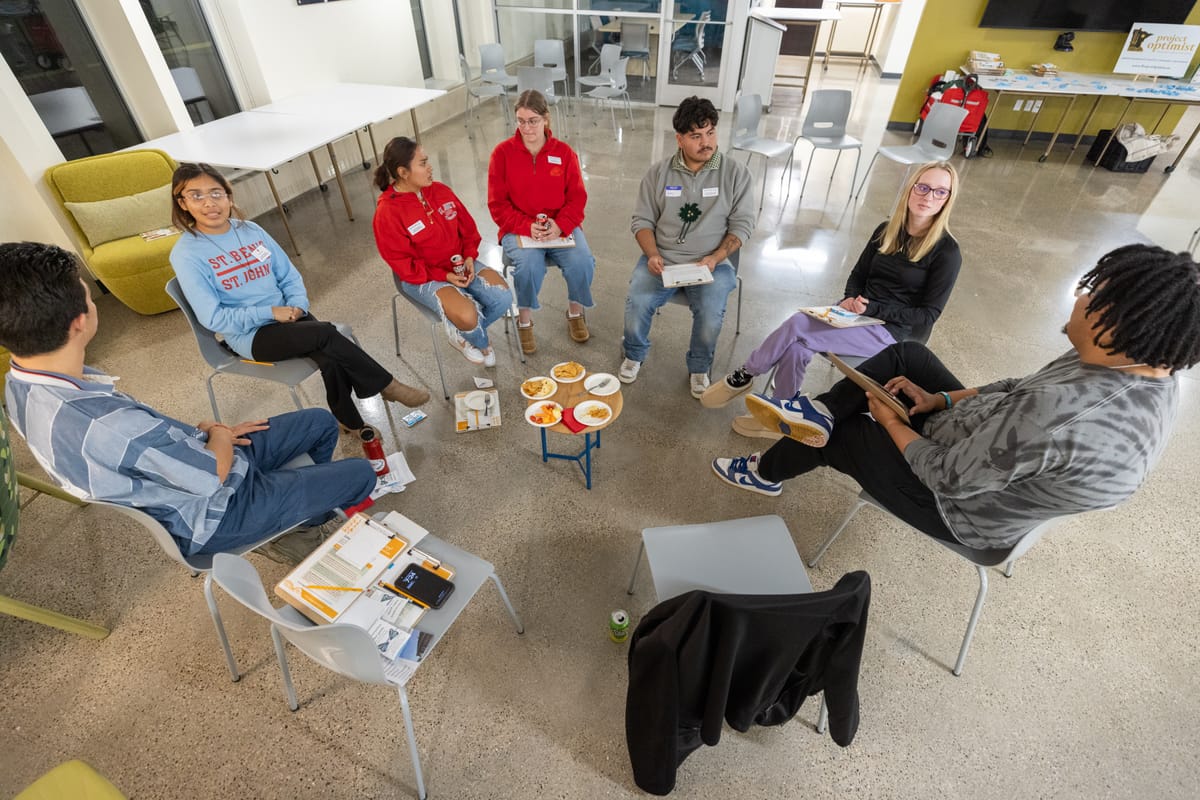
ST. JOSEPH, Minn. – Project Optimist tried something new last week.
Ten students at the College of Saint Benedict and Saint John’s University joined Project Optimist on Thursday, Nov. 14 for a moderated conversation on social connectedness and loneliness.
Project Optimist staffers floated between discussion groups and identified takeaways from the conversations. Then we got the whole group together to see what we missed.
Why focus on social isolation and loneliness?
The U.S. Surgeon General declared social isolation and loneliness an epidemic in 2023. Young adults, in particular, “are almost twice as likely to report feeling lonely than those over 65,” according to the advisory issued by the surgeon general’s office.
 Project OptimistJen Zettel-Vandenhouten
Project OptimistJen Zettel-Vandenhouten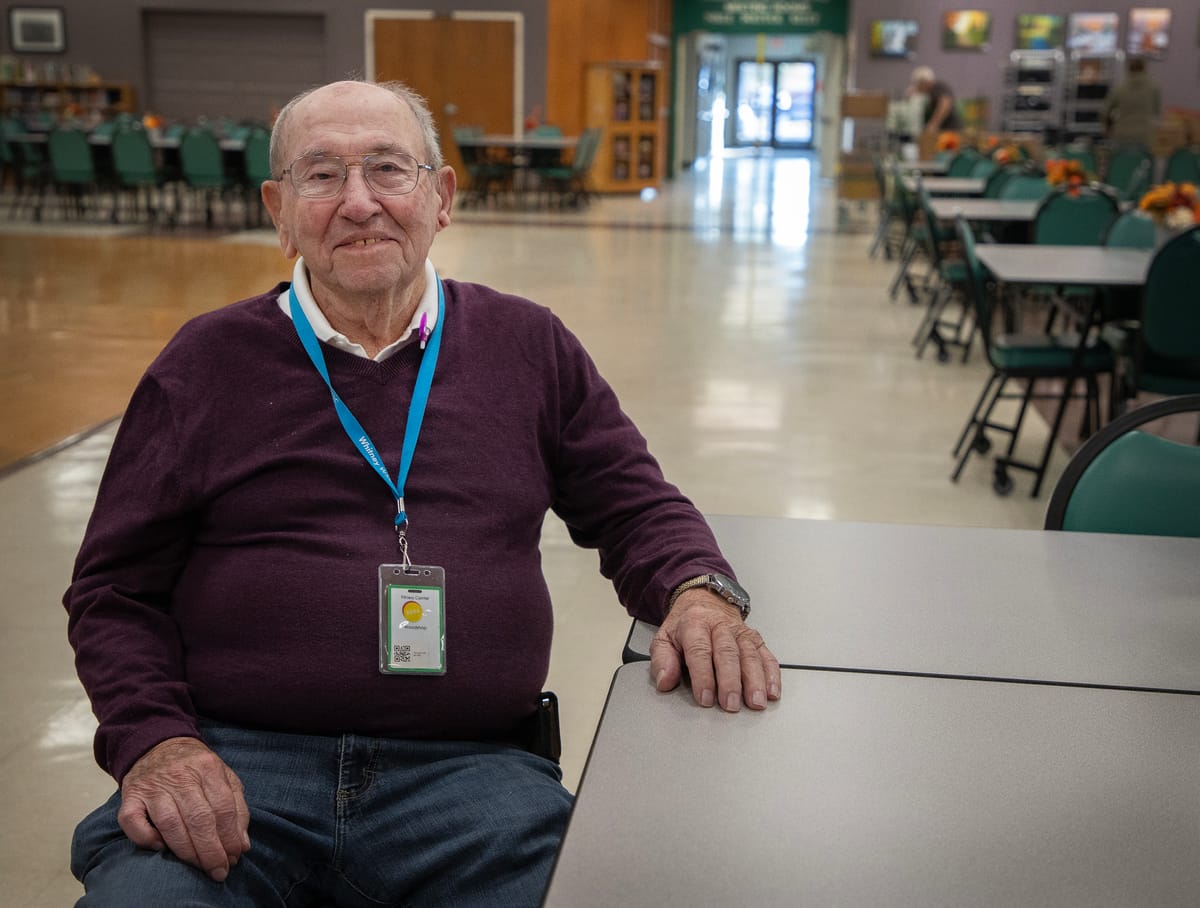
Here are the questions each group focused on during the moderated discussion:
- What does social connectedness mean to you, and why do you believe it is important in your life?
- When you think about the proper role of social connection or belonging in communities, what’s at the heart of the matter for you? What do you most care about?
Here’s what emerged from the conversations.
Themes
Authenticity matters.
Be yourself to meet your people.
Be intentional about the connections you make.
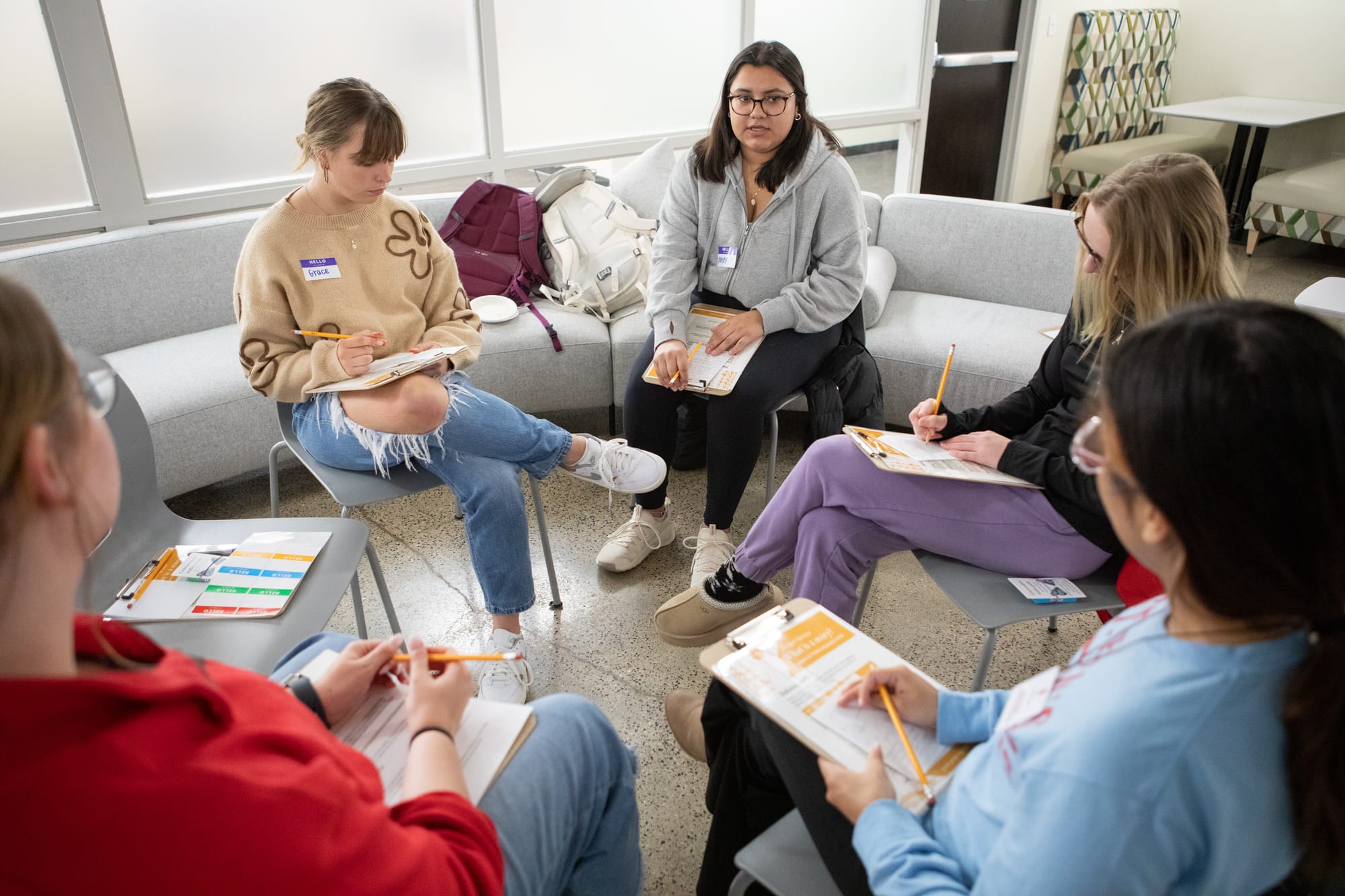
Acknowledge differences
How we connect, and even how we greet people, can vary by location, culture, or identity.
It’s hard to hear you’re “not enough” of one identity to be included in that group.
People who are part of marginalized groups share an experience, but are not always up for putting themselves out there. These two things may make it hard to find common ground.
 Project OptimistLisa McClintick
Project OptimistLisa McClintick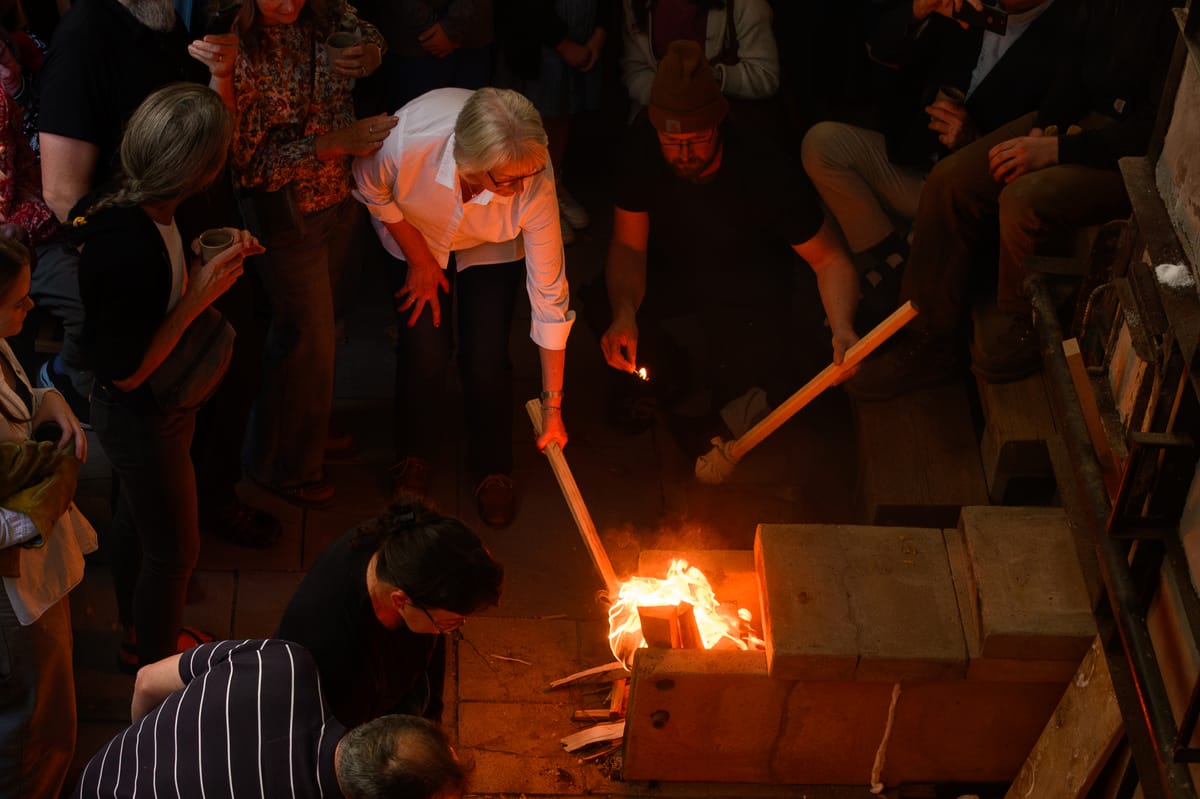
Potential solutions
Use campus services. (Or other resources for those no longer in school!)
Go beyond yourself and your comfort zone.
Explore differences in a community.
Communication
• Talk and listen.
• Don’t always agree.
• It is easier to block people out – sometimes it’s good to set that boundary and sometimes it’s important to maintain a tough relationship.
Understand that social connections change over time.
Be there for each other.
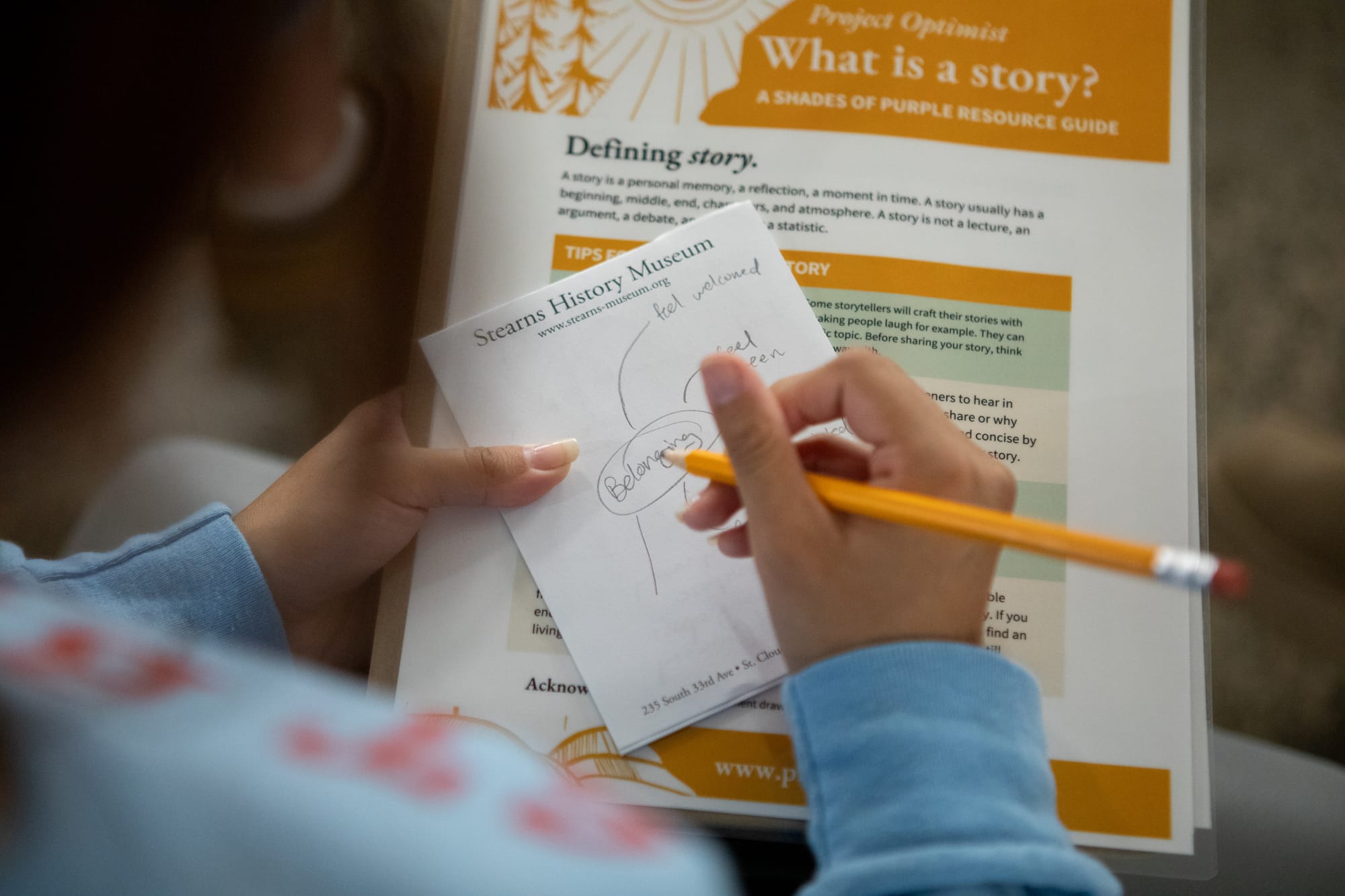
Sign up for Project Optimist's newsletter
Solution-focused news, local art, community conversations
It's free. No spam. Unsubscribe anytime.
Go deeper with a few students
Three students shared insights with us after the event.
Senior Aubrey Sherman tries to learn about people's differences as a way to better understand them and support them.
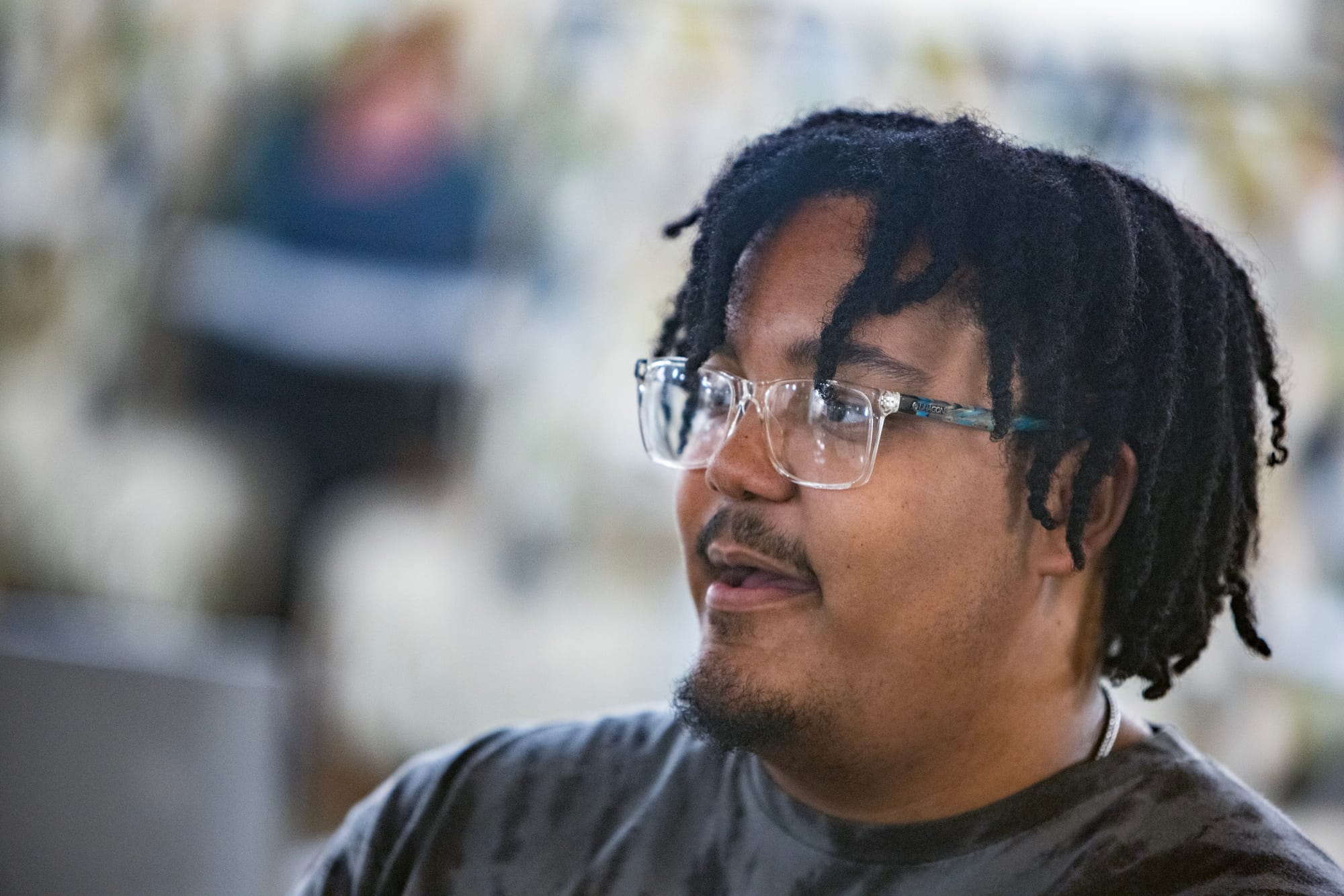
Sherman likes to ask what people think about the church.
“We are at a Catholic, Benedictine institution. Church is a huge thing in this community: you for church or against it?” Sherman said. “I'm not a Catholic, but I do still identify by a church, and that is a conversation starter that has helped open up a lot of conversations for me with a lot of my friends. So simple questions like that can really lead to doorways, and it's important to understand boundaries, too. If someone doesn't want to talk about it, they don't have to talk about it. It's totally fine with me, as well.”
Stacey Delgado, a senior, realized as a child that relationships change and people sometimes grow apart.
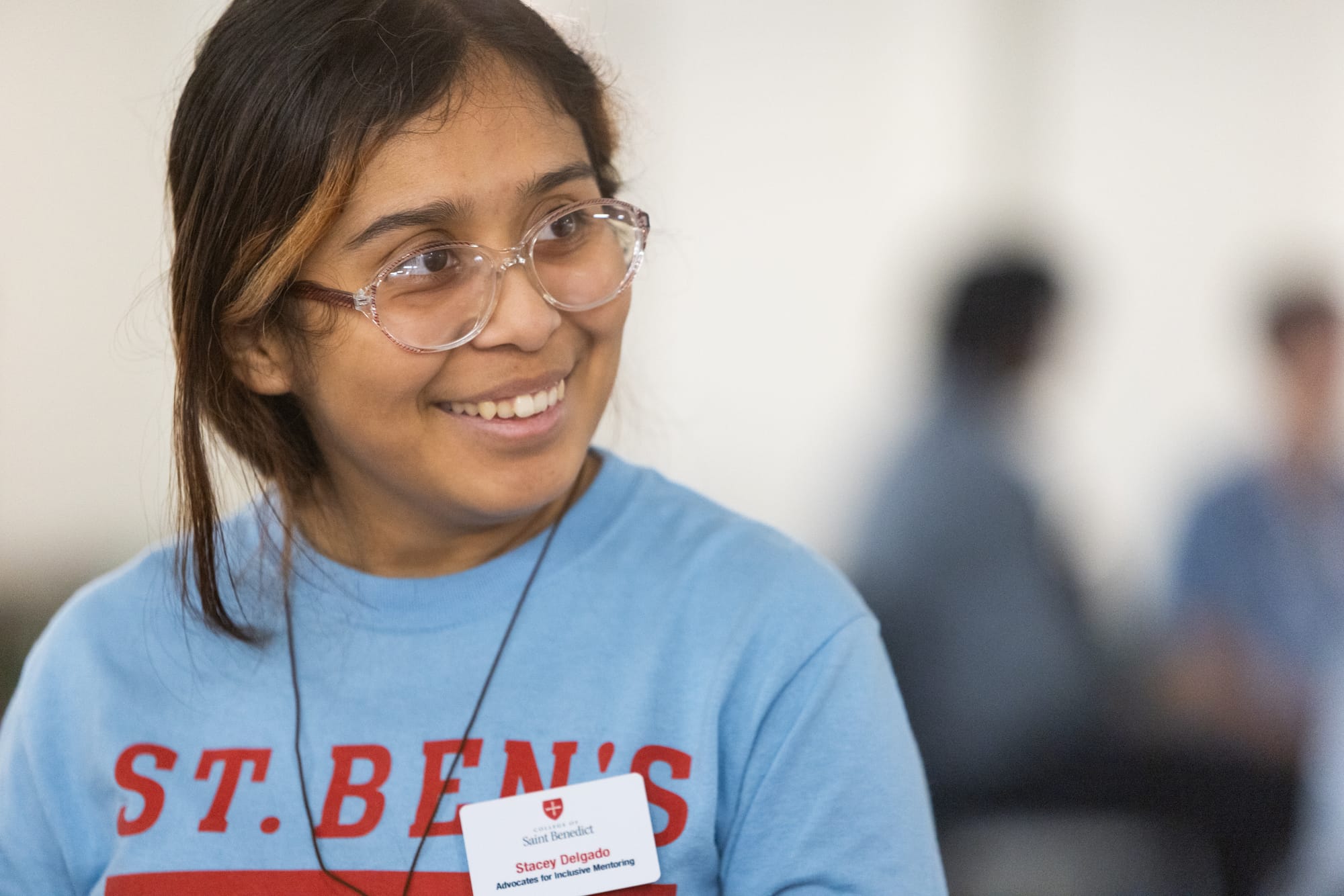
“People change. We've got to grow in different experiences and go through different spaces and different moments in our lives that are going to change us and I feel that was the main thing for me,” Delgado said.
Senior Miel Aronson served as a moderator during her group’s discussion, which required her to share the first response to each question. The practice made her realize that to make people comfortable being vulnerable, she had to be vulnerable first.
One of the main themes Aronson took away from the event was the human need for understanding.
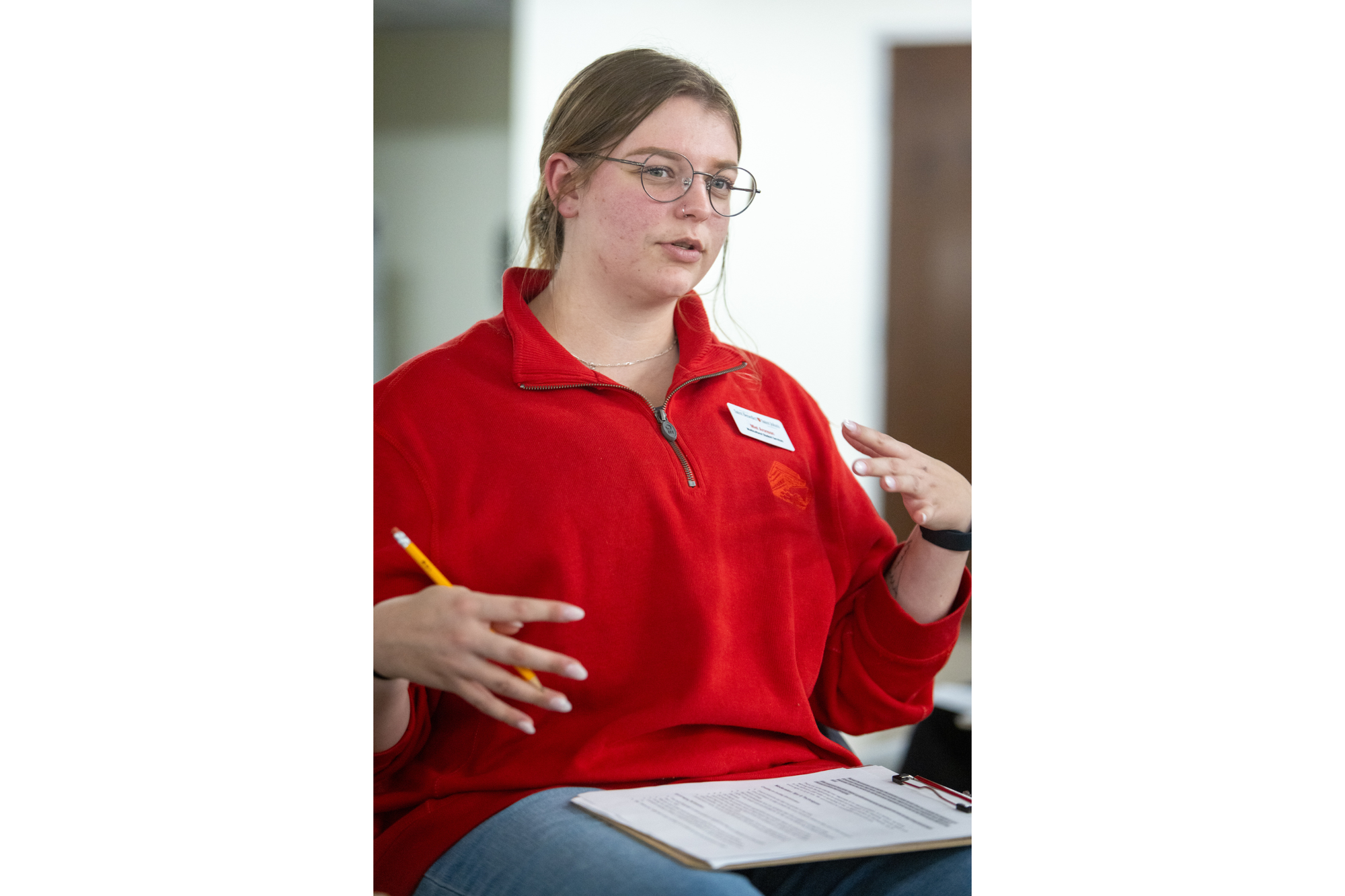
“Everybody wants to feel supported. Everybody wants to feel listened and heard, and that's a big piece of building community,” Aronson said.
What’s next
Several of the students who attended the event filled out a survey afterward. We asked them to tell us what resources would help them overcome challenges with social connectedness, what challenges they have faced in making social connections, and how they overcame those challenges.
We plan to dive into their responses to see what potential solutions are out there and produce a solutions story focused on young people in the coming weeks.
